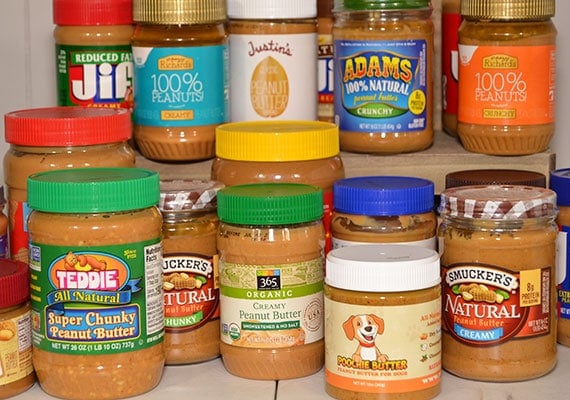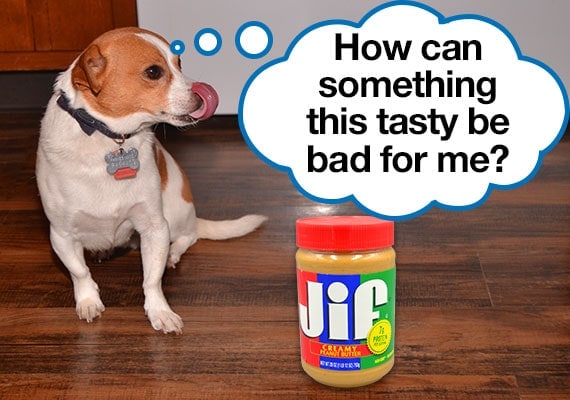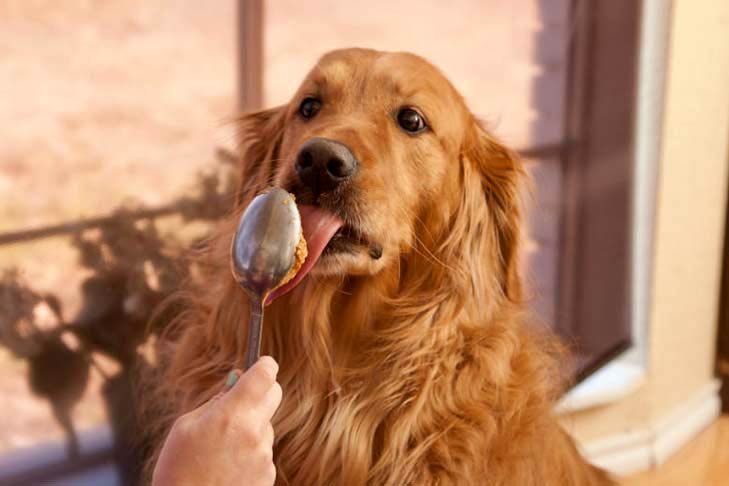Yes, in moderation, peanut butter can be good for dogs due to its high protein and healthy fat content. However, it should be given in limited quantities without additives like xylitol or excessive salt to avoid potential health issues.
Peanut butter can be a tasty and nutritious treat for dogs, but it’s essential to consider their overall diet and any specific health conditions. As with all food, it’s best to consult a veterinarian before introducing peanut butter into your dog’s diet to ensure it is safe and suitable for them.
So, if you’re considering sharing some peanut butter with your furry friend, read on to learn more about its benefits, potential risks, and best practices.

Health Benefits Of Peanut Butter For Dogs
Peanut butter offers numerous health benefits for dogs, providing a good source of protein, healthy fats, and vitamins. It can be a tasty and nutritious treat for dogs in moderation.
Peanut butter isn’t just a tasty treat for humans; it can also be a healthy addition to your furry friend’s diet. Peanuts are not only delicious, but dogs also offer several health benefits. Let’s explore the key advantages that peanut butter can provide for your canine companion.
Rich Source Of Healthy Fats
One of the main health benefits of peanut butter for dogs is that it is a rich source of healthy fats. These essential fatty acids help promote a shiny coat, healthy skin, and well-being.
Additionally, the healthy fats found in peanut butter can aid in maintaining your dog’s energy levels, supporting their immune system, and promoting brain function. By incorporating peanut butter into their diet, you can provide your canine companion with a tasty way to enjoy these essential fats.
Great Source Of Protein
Protein is a crucial nutrient for dogs, as it contributes to the growth and maintenance of muscles, tissues, and organs. Peanut butter is an excellent protein source for dogs, making it an ideal addition to their diet.
The protein in peanut butter helps support your dog’s overall strength and vitality. It assists in repairing body tissues and contributes to the growth and development of healthy cells.
Contains Essential Vitamins And Minerals
In addition to healthy fats and protein, peanut butter contains essential vitamins and minerals that can benefit your dog’s health. These include vitamin B, vitamin E, niacin, and magnesium.
Vitamin B helps with energy production, promotes a healthy metabolism, and ensures proper nerve function. Vitamin E is an antioxidant that supports the immune system and protects cells from damage. Niacin aids in digestion and contributes to a healthy coat. Magnesium is vital for bone health, muscle function, and enzyme activity.
By including peanut butter in your dog’s diet, you provide them with a convenient and tasty way to obtain these essential vitamins and minerals.

Credit: doglab.com
Considerations When Feeding Peanut Butter To Dogs
Before treating your furry friend to a delicious spoonful of peanut butter, there are several important considerations to remember. While peanut butter can be a tasty and nutritious snack for dogs, it is crucial to be aware of potential allergies, sensitivities, and harmful ingredients.
Check For Allergies And Sensitivities
Just like humans, dogs can be prone to food allergies and sensitivities. While peanut allergies in dogs are relatively rare, it’s always a good idea to start with a small amount and carefully observe your dog’s reaction. Look for itching, swelling, digestive issues, or difficulty breathing. If your dog exhibits any of these symptoms, it’s best to consult with your veterinarian and avoid feeding them peanut butter in the future.
Avoid Xylitol-containing Peanut Butter
When choosing a peanut butter brand for your pup, double-check the ingredient list to ensure it does not contain xylitol. Xylitol is a sugar substitute that is safe for humans but can be highly toxic to dogs. Even a small amount of xylitol can cause a drastic drop in blood sugar levels, leading to seizures, liver failure, or worse. Always opt for plain, unsweetened peanut butter or specifically dog-friendly peanut butter products that do not contain harmful additives such as xylitol.
Watch Out For Overconsumption
Peanut butter is high in fat and calories, so monitoring your dog’s consumption is essential. While a spoonful of peanut butter can be a delightful treat, excessive intake can lead to weight gain and other health issues. Be mindful of your dog’s portion sizes, especially if they are on a restricted diet or have a tendency to overindulge. Moderation is key!
Remember, when it comes to feeding peanut butter to your furry companion, it’s essential to prioritize their health and well-being. Checking for allergies, avoiding xylitol-containing products, and being conscious of portion sizes will ensure your dog can safely enjoy the delightful taste of peanut butter.
How To Safely Feed Peanut Butter To Dogs
When feeding your furry friend peanut butter, it’s essential to do so safely. While peanut butter can provide some health benefits for dogs, choosing the right type, using it as an occasional treat, and considering alternative peanut butter treats are crucial. Discover the dos and don’ts of safely feeding peanut butter to your beloved pooch.
Choose Natural And Unsweetened Peanut Butter
Opting for natural and unsweetened peanut butter is essential for dogs. Many commercial peanut butter brands contain harmful ingredients, such as added sugar, artificial sweeteners, and preservatives, which can upset a dog’s digestive system. Always read the label and choose peanut butter made solely from peanuts without added salt or sugar.
Use Peanut Butter As An Occasional Treat
Peanut butter should be considered an occasional treat rather than a regular part of your dog’s diet. While it can be a tasty and nutritious treat, it’s important not to overdo it. Too much peanut butter can contribute to weight gain, as it is calorie-dense. Additionally, excessive intake may also lead to pancreatitis, a potentially severe inflammation of the pancreas in dogs. As a general guideline, limit the amount of peanut butter to no more than one tablespoon per 20 pounds of body weight per day.
Consider Alternative Peanut Butter Treats
If you’re looking for alternatives to traditional peanut butter, there are plenty of options available that are safe and healthy for your furry companion. Consider homemade peanut butter treats or store-bought peanut butter dog treats. These alternatives often have fewer added ingredients and are specifically formulated to cater to dogs’ nutritional needs.
Remember, if you’re unsure about any specific dietary changes or have concerns about allergies or other health conditions, consult with your veterinarian before introducing peanut butter or any other new food or treat to your dog’s diet.

Frequently Asked Questions For Is Peanut Butter Good For Dogs?
Is Peanut Butter Safe For Dogs?
Peanut butter can be safe for dogs in moderation. It can provide a tasty treat or a way to administer medication. However, it’s essential to avoid peanut butter that contains xylitol, as it can be toxic to dogs. Always check the ingredients and consult your veterinarian before introducing peanut butter to your dog’s diet.
Can Dogs Have Peanut Allergies?
Yes, dogs can have peanut allergies, although they are relatively rare. It may be allergic if your dog experiences hives, itching, or difficulty breathing after consuming peanuts or peanut butter. In such cases, it’s best to consult with your veterinarian for proper diagnosis and guidance on dietary adjustments.
How Much Peanut Butter Can I Give My Dog?
While peanut butter can be a tasty treat for dogs, it should be given in moderation due to its high-fat content. A suggested serving size is one teaspoon to one tablespoon per day, depending on the size of your dog.
Be mindful of your dog’s overall caloric intake and adjust accordingly to prevent weight gain or digestive issues.
Conclusion
In sum, while peanut butter might be a delicious treat for us, it should be given to dogs in moderation. While it can provide some health benefits like protein and healthy fat, ensuring it doesn’t contain harmful dog ingredients, such as xylitol, is essential.
As always, it’s best to consult your veterinarian before introducing new food into your dog’s diet. Remember, their welfare is our top priority.

